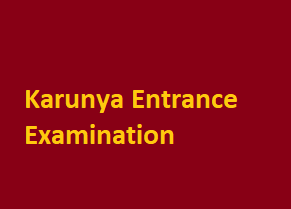Familiarity with the KEE Exam Pattern 2023 will help the candidates to get a basic idea of the nature of exam. It is also important to understand the exam pattern in order to be mentally prepared for the exam. The KEE exam will be conducted for the duration of 150 minutes and a total of 120 questions will have to be answered in this duration. The candidates must completely acquaint themselves with the details of the KEE Exam Pattern 2023 before they start their exam preparation.
KEE Exam Pattern 2023
The exam will cover all the important information related to the exam such as its mode, duration, etc. The detailed KEE Exam Pattern 2023 is given below as:
- Mode of examination: The entrance exam will be conducted in online mode, which means it will be a computer-based test.
- Duration of the exam: The total duration of the exam will be 2 hours and 30 minutes (150 minutes).
- Total number of questions: 120 questions will be asked in total in the entrance exam.
- Type of questions: Multiple choice (objective type) questions will be asked in the exam.
- Total marks: The paper will carry a total of 120 marks.
- Marking scheme: 1 mark will be awarded for every correct answer.
- Negative marking: For each wrong answer, 0.25 marks will be deducted. There will be no overall deduction from the total marks.
Distribution of marks and questions
For B.Tech Courses (Other than Bio courses):
| Subjects | No. of questions | Maximum marks |
| Mathematics | 40 | 40 |
| Physics | 25 | 25 |
| Chemistry | 25 | 25 |
| General Aptitude | 30 | 30 |
| Total | 120 | 120 |
For B.Tech Biotechnology, Food Processing & Engineering and B.Sc Agriculture/ Horticulture:
| Subjects | No. of questions | Maximum marks |
| Biology | 40 | 40 |
| Physics | 25 | 25 |
| Chemistry | 25 | 25 |
| General Aptitude | 30 | 30 |
| Total | 120 | 120 |
KEE Syllabus 2023
The syllabus for KEE exam will be based on the curriculum of the class 11th and 12th. The following topics from the subjects of Physics, Chemistry, Mathematics, and Biology will be comprised in the syllabus:
- Physics: Nuclear Physics, Current Electricity, Electromagnetic Induction and Alternating Current, Electromagnetic Waves and Wave Optics, Electrostatics, etc
- Chemistry: Electrochemistry, Atomic Structure, Coordination Chemistry and Solid State Chemistry, Alcohols and Ethers, Organic Nitrogen Compounds,, etc
- Mathematics: Complex Numbers, Matrices and Determinants, Calculus, Differential Equations, Probability, Vector Algebra, etc
- Biology: Cell Biology & Genetics, Biology in Human Welfare, Modern Genetics, Biotechnology, Immunity, Environmental Science, Microbiology, etc
For Latest Updates Please Subscribe our Telegram Channel: Here

